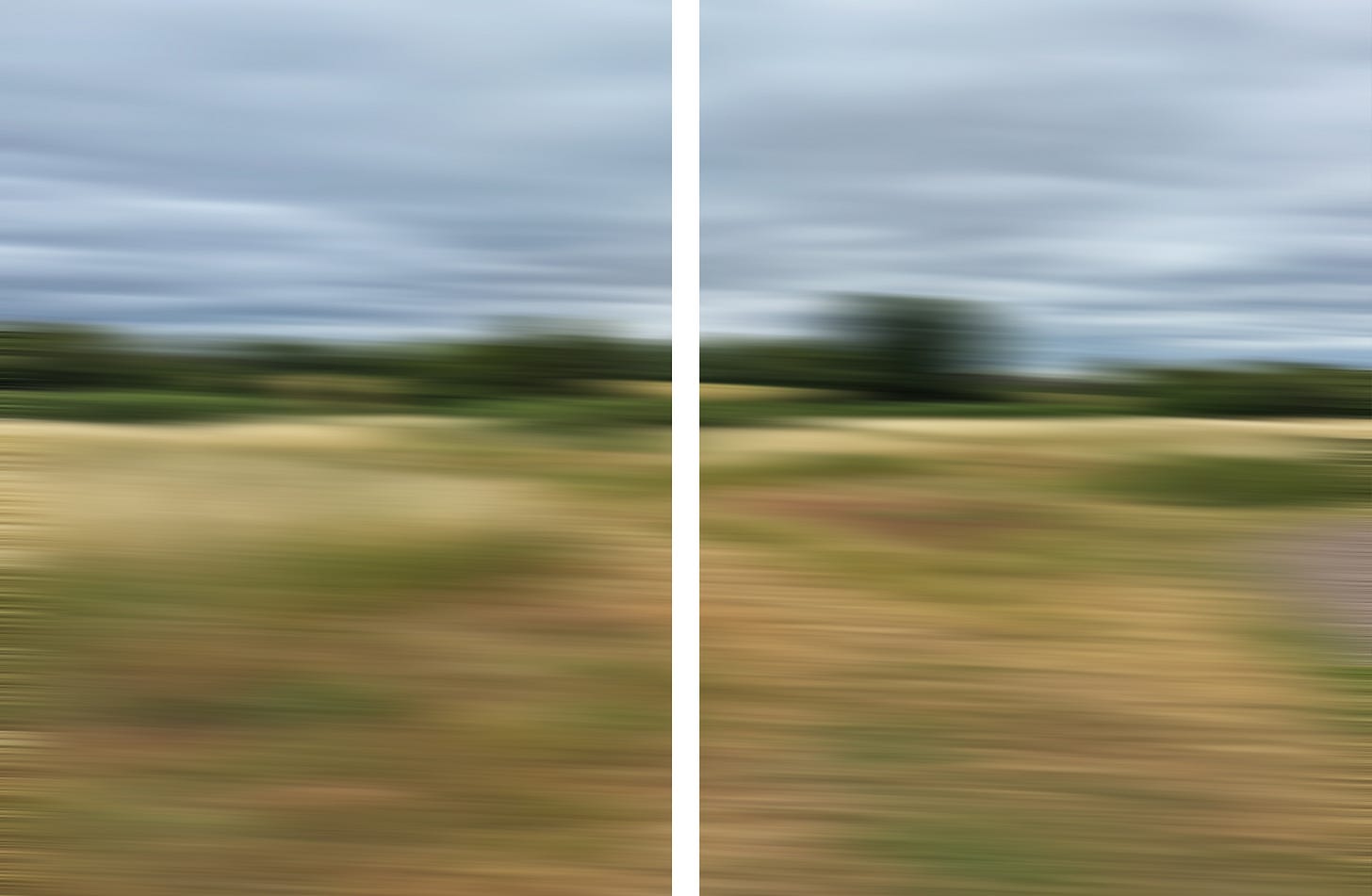We are able to tolerate the car and the dimensions through which it moves — not just space, but time – because of that essential creation of the two: speed. We can accept confined space so long as we can confine time simultaneously. A journey of several hours can pass happily enough, even without the distractions of conversation or music or scenic beauty, so long as we are engaged in this dual constraint. As soon as the car comes to a slowing or a halt, that relationship is weighted too heavily on one side and the balance is gone and the enterprise becomes by degrees unbearable. Speed is the great harmonious enabler of confined space and time. My wife might smile at these ruminations and be happier all round if I had learned to drive and have less spare thinking time beside her as a passenger and more practical time ‘tolerating’ the car from behind the wheel. Nevertheless, we were in the car, a month or so ago, repeating a drive which we had made perhaps a hundred times or more together when I gave this matter some serious thought. The journey to Cornwall, to see my wife’s family, takes close to four hours. It’s taken as many as eight hours before, when our speed has been snail-like, when the constraint on our space and time has become almost intolerable, when frustration has muted all conversation, and when the scenery has been reduced to a static grey stretch of a thousand other metal boxes. I wrote something about this journey when putting together some thoughts for my mother-in-law’s eulogy two years ago. A couple of years before her death, during lockdown, we went to surprise her on her birthday, legally constrained as we then were, to limit socialising to the company of five other people and an outdoor space. ‘Mama’ had grown out her hair, unable to get it cut professionally. I couldn’t remember her more feminine, more beautiful. We didn’t embrace or touch, but shared sandwiches and a cake, and were back on the road a mere couple of hours later. In the eulogy, I spoke about this specific journey and the many others we had made over the years, and about the circular copse of beech trees that sit on the border between Devon and Cornwall, that you can see from the road, a reminder that there is not long left to travel – the trees are known as the ‘Nearly There’ or ‘Coming Home’ trees. My wife is always the first to see them, and will always point them out to the children. At the funeral, I let Mama know that we would think of her each time that we drove past them, though knew that she would be in our thoughts for so much of the journey before and after each sighting. We were in the car once again a few weeks ago, on our way to visit Papa. Because of the distance and the time and because I don’t drive, my mind came back to these memories, the interconnectedness of things, how we can bear to move through time and space and contrarily to sit still, how we can cope with speed, with silence, with the radio and these thoughts, with a few shared words every now and again, with those trees, with thoughts of those we have lost, with the green, the grey, and a blue line of sea getting closer on the horizon. We are nearly there.
‘Friday Fragment’ is an additional weekly instalment to my A Thousand Fragments monthly newsletter.





Beautiful thoughts, Matt. I love to read your fragments with my morning coffee and open up to your world of wonders: everyday experiences enhanced by your imagination and your impeccable use of words. We get to know you more, line by line, with every weekly Friday Fragment.
A beautiful piece, Matt - and I know the ‘nearly trees’ all too well, too!
I do drive, but very rarely when we’re making the trip from East to North (Devon) to see Ben’s mum.
I much prefer the passenger seat - taking in the scenery 😊